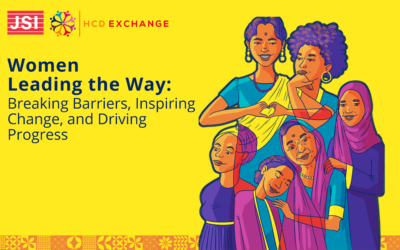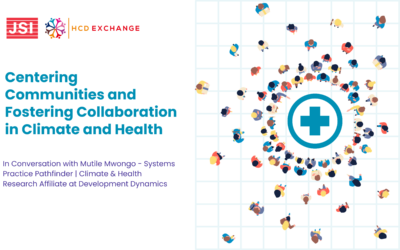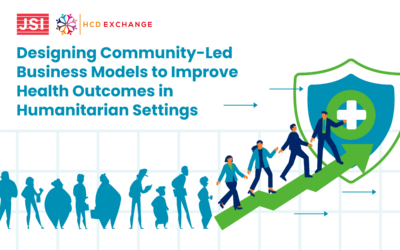At the Global Health Practitioners Conference 2024 in Nairobi, Kenya, the HCDExchange team led an engaging, interactive session on using Human-Centered Design (HCD) to address the intersection of climate change, health, and agriculture. This 90-minute, hands-on session guided participants through applying HCD principles to real-world challenges, using group activities and practical tools to develop solutions tailored to the needs of communities most impacted by climate-driven health and agricultural challenges. Participants contributed diverse perspectives by defining problem statements, ideating solutions, and exploring responses to issues like disrupted access to sexual and reproductive health services, maternal and neonatal health risks, declining nutrition, and rising mental health challenges—illustrating how HCD enables community-centered, adaptive solutions.
The session highlighted the need for practical, actionable skills to tackle these challenges by emphasizing the interconnected impacts of climate change on agriculture and public health. Participants engaged with HCD tools that support adaptable approaches, such as “How Might We” exercises, Future Wheel, and Rapid Ideation, which guided them through developing responses to immediate climate impacts while building resilience within health and agricultural initiatives. This collaborative format allowed participants to experience how HCD’s people-centered design process prioritizes community needs, constraints, and aspirations.
HCD has proven valuable in public health through its iterative design process. It enables health systems to integrate community-driven feedback loops and tailor interventions to local contexts. For example, HCD has supported co-designing culturally relevant maternal and child health services, resulting in higher adoption rates and improved outcomes (IDEO.org, 2018, Designing for Health). This approach has also driven progress in areas like vaccine delivery and chronic disease management, showcasing health’s adaptability in response to evolving needs.
Agriculture, facing similar complexities, can significantly benefit from HCD’s inclusive methodology. Traditional, top-down approaches often miss critical local insights. At the same time, HCD actively involves farmers and communities in shaping climate-adaptive practices, enhancing resilience in sustainable crop management and water conservation. This collaborative process bridges gaps across health, environmental adaptation, and agricultural development, yielding innovative solutions that strengthen resilience and align with community needs.
By the end of the session, participants recognized the power of a multistakeholder approach in enhancing the feasibility and sustainability of interventions. Bringing together varied perspectives added depth to solutions and reinforced the value of HCD in building resilient, adaptable programs. As organizations adopt HCD, they can foster solutions that meet immediate challenges and support long-term resilience in communities confronting the impacts of climate change.
Article compiled by Muthoni Wachira, Director, JSI/HCDExchange
About the HCDExchange
The HCDExchange brings extensive expertise in facilitating discussions and providing technical assistance for organizations aiming to integrate HCD into their programs. HCDExchange supports organizations through every step of HCD implementation, from concept development to solution delivery, serving as a valuable partner for those seeking to embed HCD into their strategies.




